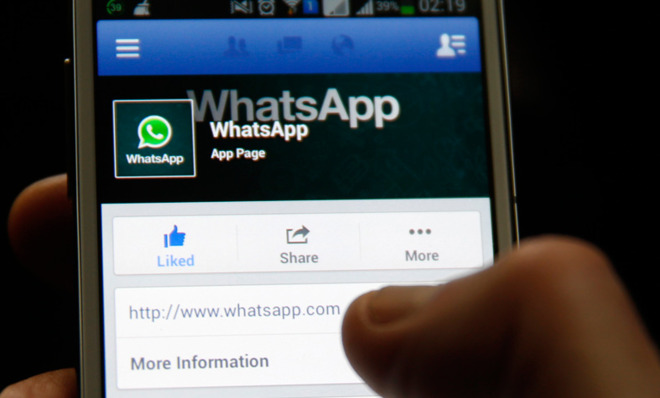WhatsApp and the economics of free stuff
Analysts say the messaging service has cost phone carriers billions of dollars. But that's not quite the case.

A free daily email with the biggest news stories of the day – and the best features from TheWeek.com
You are now subscribed
Your newsletter sign-up was successful
A topic that has received a lot of discussion in the wake of Facebook's controversial $19 billion purchase of WhatsApp is the impact that WhatsApp is having on phone carriers. Today, Bloomberg reported that "free social-messaging applications like WhatsApp cost phone providers around the world...$32.5 billion in texting fees in 2013, according to research from Ovum Ltd. That figure is projected to reach $54 billion by 2016."
There's a lot of reason to be skeptical of this analysis though. As Financial Post notes, WhatsApp "is free for the first year and 99 cents annually thereafter," meaning it "is almost always cheaper than texting." Other messaging services — such as Apple's Messages — are completely free. And yes, lots and lots of people are using such services, which phone carriers could easily see as potential profits going to waste.
The problem is that you can't honestly compare the use of a free product to that of a paid-for product.
The Week
Escape your echo chamber. Get the facts behind the news, plus analysis from multiple perspectives.

Sign up for The Week's Free Newsletters
From our morning news briefing to a weekly Good News Newsletter, get the best of The Week delivered directly to your inbox.
From our morning news briefing to a weekly Good News Newsletter, get the best of The Week delivered directly to your inbox.
Take the music and movie industries, which have often used similar extrapolations to calculate their losses from piracy. Many studies have looked at the amount of free downloads registered on Napster, KaZaA or BitTorrent, and then claimed that the downloads constitute lost sales. But obviously not everyone who takes something for free would buy it if weren't otherwise available. Demand curves (with a few exceptions) tend to be downward sloping — the lower the price, the higher the demand. And free is as low as can be, so it's bound to bring in customers who otherwise wouldn't be interested.
Imagine you're at a music concert, and a bottle of water costs $5. You might buy one if you're really thirsty and have no other option. Now imagine that same bottle of water is free and you can have as many as you like. A lot of people will take one for now, one for later, one or two for a friend. Heck, fill your bag. The same dynamic applies to the difference between free and paid-for music, and free and paid-for messaging services.
In fact, some studies show that freely available music and movies may actually boost sales by raising awareness of the product. Similarly, free messaging services may draw people into an ecosystem where they make other purchases from phone carriers. For example, free messaging may convince people who don't already have smartphones to get one, which would entail spending money on phone calls, internet capability, or other services.
Yes, phone carriers may have to pivot away from text messaging in response to the rise of WhatsApp and other messaging services, just as the music and movie industries had to adapt to the advent of the internet. But that's business, particularly in the fast-moving tech world; change happens.
A free daily email with the biggest news stories of the day – and the best features from TheWeek.com
But keep in mind that these loss estimates are extremely fudgy, whether they come from the music or phone industries. Don't take them with a pinch of salt. Take a barrel.
Editor's note: This article has been revised since it was first published in order to more clearly include proper attribution to source material.
John Aziz is the economics and business correspondent at TheWeek.com. He is also an associate editor at Pieria.co.uk. Previously his work has appeared on Business Insider, Zero Hedge, and Noahpinion.